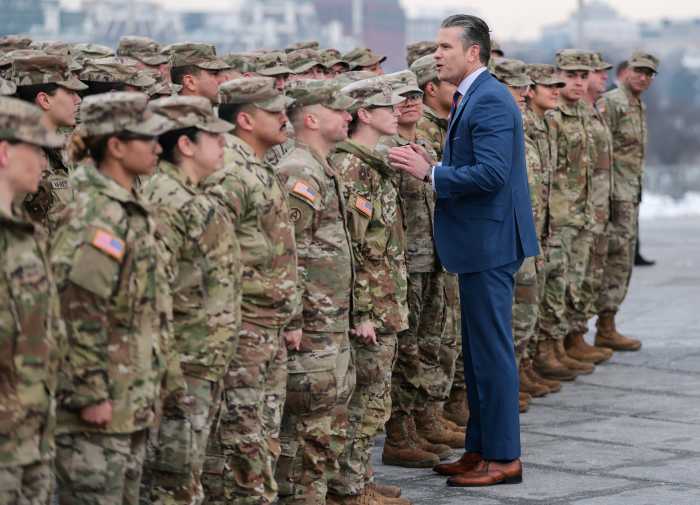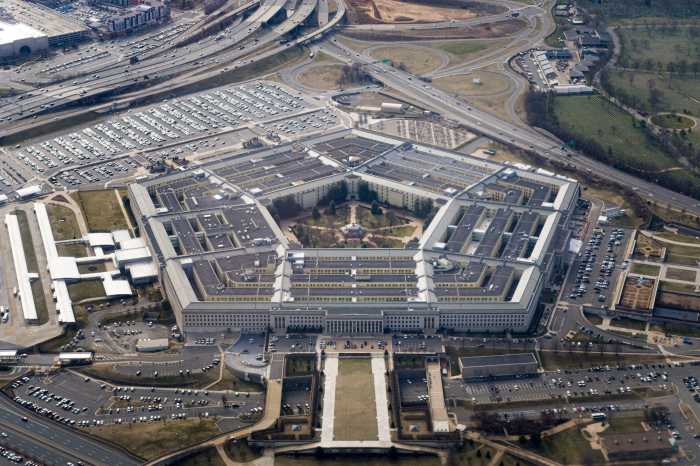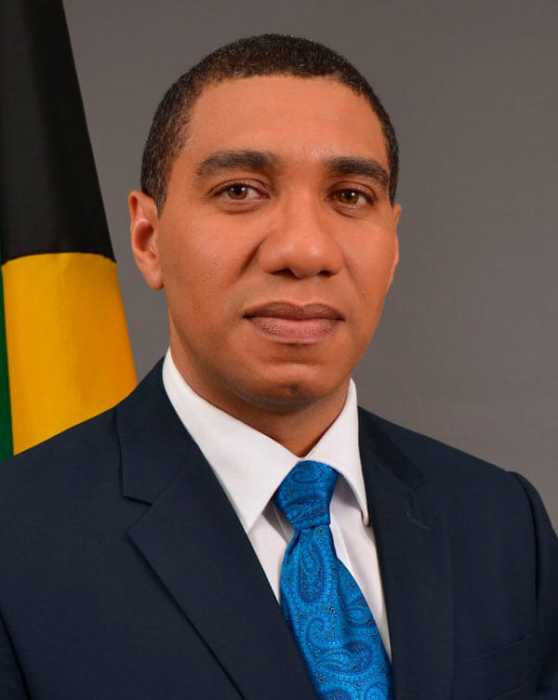The US Air Force is rejecting early retirement opportunities for transgender members who have accrued 15-18 years of service, representing the latest development in the Trump administration’s renewed plan to kick transgender troops out of the military.
According to the Associated Press, transgender members of the Air Force will have the option of either receiving a lump-sum separation payment that is usually reserved for junior troops or face removal from the military. The Associated Press reported that approximately a dozen members of the Air Force were “prematurely notified” that they could retire before the policy’s implementation.
Air Force official Brian L. Scarlett signed an order “disapproving all Temporary Early Retirement Authority (TERA) exception to policy requests … for members with 15–18 years of service,” according to the Advocate. The policy effectively cancels early retirements that were already approved.
A memo sent from the Air Force to a trans service member that was obtained by the Advocate cited President Donald Trump’s “Prioritizing Military Excellence and Readiness” executive order in carrying out the policy. The executive order disparages transgender individuals with deeply offensive and outright paranoid language, accusing the Armed Forces of being “afflicted with radical gender ideology to appease activists” and insisting that “adoption of a gender identity inconsistent with an individual’s sex conflicts with a soldier’s commitment to an honorable, truthful, and disciplined lifestyle, even in one’s personal life.”
Following the executive order, Defense Secretary Pete Hegseth issued a memo in February stipuatling that trans troops were barred from joining the military and existing service members were no longer allowed to receive gender-affirming care. According to the Associated Press, active duty troops had until early June to identify themselves and start leaving the military voluntarily. Those who did not separate from the military by that time faced involuntary separations.
Prior to the Supreme Court’s ruling, the administration already encountered legal issues with the policy. By March of this year, at least three federal judges had handed down orders blocking implementation of the ban.
Logan Ireland, a trans service member interviewed by The Advocate, outlined some of the benefits he will lose under the new policy.
“It removes the ability to have TRICARE for Life, so our health insurance, that’s so important for us,” he said. “It removes the ability for us to possibly live on base where, as a transgender couple, we feel safe. And then just the other added benefits that come with being a retired veteran, that gets wiped out.”
A spokesperson for the Pentagon deferred to the US Air Force when asked by Gay City News to comment on the policy. The Pentagon did not respond to a question seeking clarification on whether other branches of the military will replicate the Air Force’s policy. The Air Force did not respond to a request for comment.
SPARTA Pride, a non-partisan organization committed to ensuring the rights of transgender service members, criticized the Air Force in a Facebook post on Aug. 7.
“Loyal patriots having their careers cut short is difficult on its own,” the organization wrote. “The Department of Air Force’s move to rescind previously approved retirements adds insult to injury. This action demonstrates that this administration does not value the contributions and sacrifices of service members and their families.”
The Supreme Court on May 6 allowed the Trump administration to implement its discriminatory ban on transgender service members while the issue continued to be heard in federal court. Justices Ketanji Brown Jackson, Elena Kagan, and Sonia Sotomayor dissented.
The ban on trans troops marks the second such policy under Trump, who also implemented a ban in his first term — but this time it appears to go even further. Under then-Defense Secretary James Mattis, “any transgender person with a diagnosis of gender dysphoria” was “presumptively disqualified for service, unless they were already serving and willing and able to serve in their biological gender at birth,” according to the previous ban on trans troops, which was first announced by Trump in a Twitter post in July of 2017. The policy faced legal hurdles, but nonetheless went into effect in 2019.
That same year, Gay City News reported on the chaos and dysfunction behind the military’s uneven implementation of the policy during Trump’s first term. A Department of Defense official told Gay City News at the time that the military would disclose the number of service members discharged under the previous trans ban, but the Air Force, Army, Navy, and Marines offered a variety of responses when contacted individually by Gay City News.





































